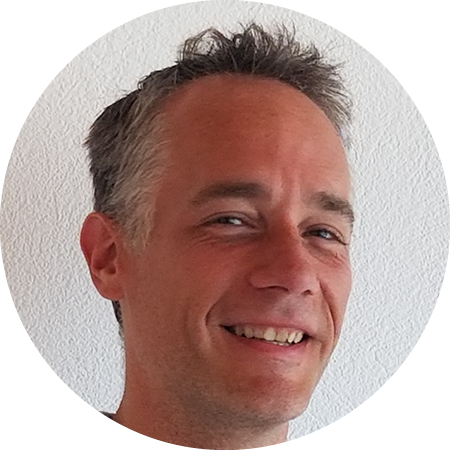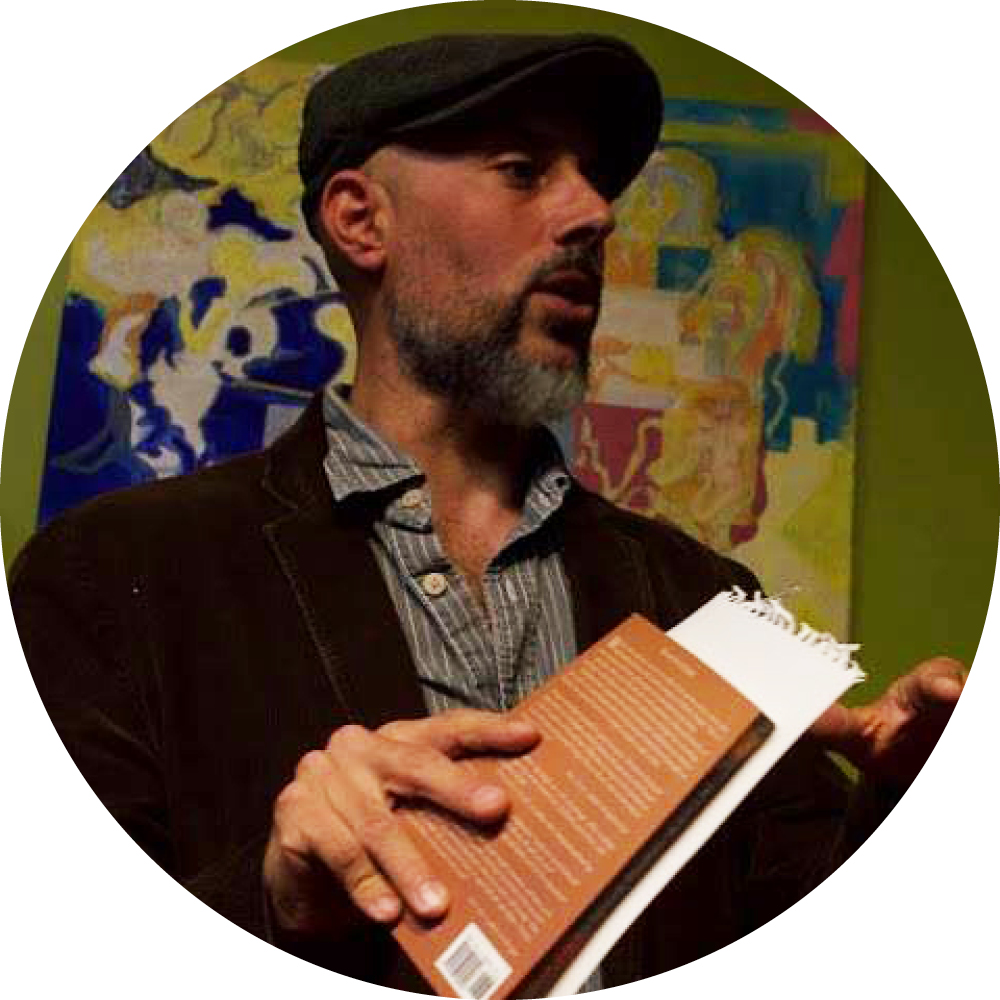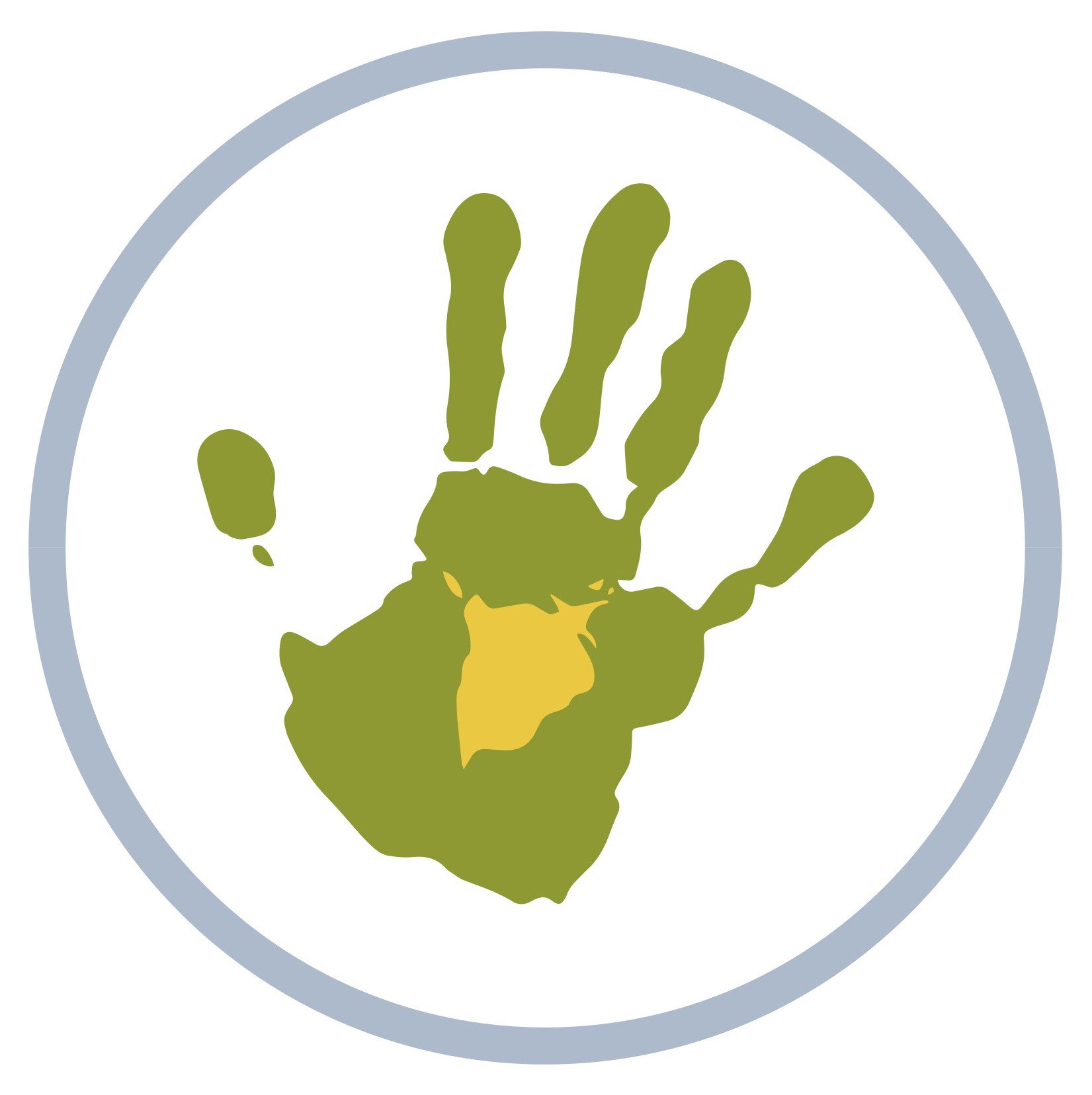Living in
a Mess
By Todd Hoskins
In Control, Out of Control
I wake, start the coffee, and find a deer tick embedded in my hip. Noticing we are out of doxycycline, an antibiotic to prevent Lyme disease, I make a note that I need to call the doctor. I notice the avocado that inspired a breakfast plan while lying in bed is rotting. I quickly check my email to find a dozen more to-do’s and replies that I neglected to send.
Out of bed for merely five minutes, the thought enters my head that “I need to take control today.” I notice the urge to be “on top of things,” to smother the forces of wild, unpredictable forces within wild, uncontrollable days.
No one wants to be “out of control.” And yet we all are. We are living in a mess.
When I write of “the mess” I’m not referring to our economic, political, social, and spiritual conditions, as dire as they may be. I am writing about the growing realization for many that the world is not as we once thought it was. Something does not seem right, doesn’t fit, and doesn’t work.
The mess is the uncontrollable, unpredictable nature of life. The mess is uncertainty at scale.
The mess is neither good nor bad. It’s just complex. We don’t know what will happen tomorrow, or in the coming decade. We can’t control outcomes, as hard as we may try. Our problems seem to be connected to other problems, it seems that we can’t know the impact of our choices in advance.
We’ve been led to believe that that we can and should predict; that we can and must control. And it’s caging us.
“I need to take control today.”
I notice the urge to be
“on top of things,”
to smother the forces of wild,
unpredictable forces within wild,
uncontrollable days.
Enraged in a Cage
Our neighbors have been boarding two dogs in a cage in their backyard. They sleep within the cage, barricaded within a shed at night because they are strong dogs. Angry dogs. At the sight of a person, they bark. They pace. Their restlessness is palpable. Our dog does not want to venture outside because he is afraid of them.
In a way, across Western cultures, we the people are living in a cage. Does it not feel like people are on edge? Do you imagine how easily various moments could become violent online or in the physical world? Do you sense the levels of anxiety across different groups of people?
We can blame the media, or the forces of capitalization and colonization. We can explore racism, xenophobia, sexism, greed, fear, and anxiety as contributing factors.
You can esteem Greek civilization, and then remember that 1 out of every 3 citizens lived in a state of slavery. You can idolize the US Constitution and remember that it truly was about “all men – not human beings – being equal” because there were few rights for slaves and women. People literally have been caged for centuries and continue to be.
Our history is not as ideal, or as neat and simple as we were taught it was. Heroes were and are fallible, greatly assisted and preceded by people who are now largely forgotten. You can believe this and be angry, or you can refuse to believe this and be angry. Regardless we have plenty of anger.
We have real cages, and cages that are metaphors for our ways of seeing the world. It’s not the mess that is trapping us, leading to widespread despair, anxiety, apathy, disturbing suicide rates, or hours of numbing ourselves in front of a screen. In part, it’s our relationship to the mess, to uncertainty itself.
People are shaking the walls of their own cages, screaming, “Give me certainty!” “Give me predictability.” “Give me control!”
Many reply to that plea for certainty, predictability, or control, and charge full price for it. But the fog of our collective illusions is lifting. People are waking up to a world that is more surprising and maddening, magical and mysterious than words printed in manuals and guidebooks. We need to face the uncertainty, cease our endless forecasting, and find alternatives to the dichotomous trap of being in control or out of control.
Perhaps the rage and the cage can fall away.
“Give me certainty!”
“Give me predictability.”
“Give me control!”
Plans and Policies
In my field of Organization Design, we seek new ways of working together and relating as teams, organizations, and networks that lead to more adaptability and effectiveness. I get to witness in myself and others, the ways in which the impulse for control plays out in big decisions and daily interactions.
You want to be more inspirational as a leader? Find ways to motivate your employees? Manage by objectives? Write a new employee policy handbook?
None of these pursuits are necessarily detrimental, but perhaps you can see how control can creep in. The desire to inspire or motivate can easily become, “I want to control your energy.” “I want you to feel a certain way.” To manage or prescribe goals and rules can be translated, “I want to control your behavior.” “I want to declare what you focus on, and what you do and don’t do.”
It’s not surprising to read the latest statistics on worker disengagement – millions of people clocking in and clocking out, feeling used, with their uniqueness and creativity undervalued or ignored.
When you turn up the dial of control, the dial of vitality goes down. This is even true with my own habits. When I am pushing and squeezing myself to “do what needs to be done,” chances are I’m going to run out of energy pretty quickly.
We have been pretending we can control nature, people, and outcomes for too long. It doesn’t work. The planet is telling us loud and clear. The workers are telling us too, especially now with widespread post-pandemic gut checks. And the outcomes?
We have millions of brilliant people working with astonishing technology on our most pressing issues, and our systems are still falling apart. We hold steadily onto control, believing that with the right plans, policies, and actions, the world can become a safe, thriving, and equitable place.
To plan, to execute, to measure – these are the bricks that we have been told must be laid for anything of significance to be accomplished. In the mess, this foundation is not enough. Our problems are interconnected. The variables are dynamic and seemingly infinite. There are no quick fixes.
We have been substituting planning for imagining, executing for responding, and measurement for awareness. Our planning and predicting, as valuable as they are, keep us trapped within the control paradigm.
We are confronting this mess whether we want to or not. Life has always been in a state of evolution. It is the way we see the world that has not been evolving.
“Life creates conditions
conducive to life.”
– Janine Benyus
In the Wild
For nearly eighteen months I have been taking a sunrise hike with my dog along the beach, in the sand dunes, or through the woods every morning. I attempt to pause my habitual thinking, be immersed in the experience, and have my awareness out into the world rather than on myself.
Some days I sense the symphony of life without needing to identify or figure out what is happening. These are the glorious walks when I am part of the wild, in the forest as a member of the forest rather than a busy, planning human intruder taking a break.
To be in the wild – of the wild – does not require me to be in the wilderness. Though I cherish the feeling of being in the current of a stream, in the center of a storm, or beneath towering trees, I am sometimes in the wild at my desk.
In these moments I am not in control, nor out of control. I am participating with the wild forces of life, even if its in the sending of an email.
I am convinced that the best alternative to control is life. Not simply being alive but being attuned to, actively engaged, and responding to what is happening now, much of it invisible but real. It is wild, full of surprises. Unpredictable. Uncertain. It’s only in the thinking or reflection on this uncertainty that my nervous system gets activated and I’m prone to worry.
Biologist Janine Benyus has written that “Life creates conditions conducive to life.” I interpret her words as “vitality is contagious.” When I am in the wild, the forces of life multiply. Being fully alive and responsive is not just a good feeling, it is necessary if we are going to tear down these cages. We’re not going to think our way out of this.
Planning and policies are still necessary. They will shift – both the plans themselves and how they are formed – if we are working with and participating with life. So rather than more competing instruments, habits, and policies of control, perhaps we need more wilderness guides. More time in the wild. A deeper understanding and experience of the principles of life.
This morning’s hike was through the woods to the beach, getting both the endless horizon of the big lake, and the canopy of living protection. When the sound of the waves was audible, the dog darted toward the water. Jogging after him in curiosity, I got to witness his joy, biting at the four-foot waves, running back and forth along the water’s edge. I felt the pulse of life, not thinking about my day or what I needed to do. Just there in the wild, of the wild.
Click here to hear more from Todd Hoskins on the Reimaginining Podcast.

Re-sources
Re-Imagining Education

Empowering educators to take a deeper look at the stories told in our schools and to re-imagine them in transformative and
nurturing learning spaces.
Learning Opportunities

Classes, workshops, and lectures that help to empower people to re-imagine who they are and their place in the world.
Get Involved

Help the Chicago Wisdom Project realize its mission to re-imagine education through holistic programming that transforms individual, community and world through creative expression.
